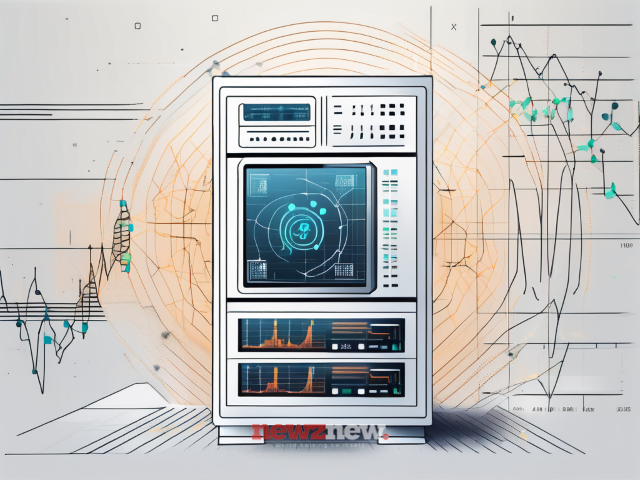Quantum AI: The Answer to Algorithmic Trading Challenges: In recent years, the financial industry has witnessed a significant shift towards algorithmic trading. This method involves the use of computer programs to execute trades, utilizing complex mathematical models and analyzing vast amounts of data in real-time.
 Algorithmic trading has gained popularity due to its ability to automate decision-making processes and improve trading efficiency. However, as financial markets become increasingly complex and volatile, traditional algorithms face significant challenges. This is where Quantum AI comes into play.
Algorithmic trading has gained popularity due to its ability to automate decision-making processes and improve trading efficiency. However, as financial markets become increasingly complex and volatile, traditional algorithms face significant challenges. This is where Quantum AI comes into play.
Understanding Quantum AI
Quantum AI is a cutting-edge field that combines the powers of quantum computing and artificial intelligence (AI). Quantum computing takes advantage of the principles of quantum mechanics to perform computations at an unprecedented speed compared to classical computers. On the other hand, AI refers to the development of computer systems that can perform tasks that typically require human intelligence, such as learning, reasoning, and problem-solving. By merging these two domains, Quantum AI has the potential to revolutionize algorithmic trading.
The Basics of Quantum Computing
At the heart of quantum computing lies the qubit, the fundamental unit of quantum information. Unlike classical bits, which can represent either a 0 or a 1, qubits can exist in a superposition of both states simultaneously. This unique property enables quantum computers to perform parallel computations and solve complex problems that are intractable for classical computers. Coupled with the phenomenon of entanglement, where multiple qubits become correlated, quantum computers have the ability to process and manipulate vast amounts of information simultaneously.
Imagine a scenario where a classical computer is tasked with finding the optimal solution to a complex optimization problem. It would have to try every possible combination of variables, which would take an astronomical amount of time. However, a quantum computer, with its ability to explore multiple solutions simultaneously, can find the optimal solution in a fraction of the time. This speed and efficiency make quantum computing a game-changer in various fields, including finance, drug discovery, and cryptography.
The Intersection of AI and Quantum Computing
The collaboration between AI and quantum computing brings forth a wealth of opportunities. Traditional AI algorithms can be enhanced by leveraging the parallelism and computational power of quantum computers. Additionally, the combination of quantum computing and AI can usher in new algorithms and methodologies that embrace uncertainty and nonlinearity, two key characteristics of financial markets.
Imagine a scenario where an algorithmic trading system powered by Quantum AI is analyzing vast amounts of financial data in real-time. It can process and analyze market trends, news articles, social media sentiment, and even weather patterns simultaneously. By incorporating quantum algorithms, the system can identify complex patterns and correlations that would be impossible for classical AI systems to detect. This enhanced capability can lead to more accurate predictions and better decision-making in the fast-paced world of financial markets.
Furthermore, the combination of AI and quantum computing can also address the challenges posed by the inherent uncertainty and nonlinearity of financial markets. Traditional AI models often struggle to capture the complex dynamics of these markets, leading to suboptimal predictions and strategies. However, by harnessing the power of Quantum AI’s comprehensive platform, AI algorithms can explore a multitude of possibilities and adapt to changing market conditions in real-time. This flexibility and adaptability can provide traders and investors with a competitive edge in an ever-evolving financial landscape.
The Role of Quantum AI in Algorithmic Trading
As algorithmic trading faces challenges in areas such as predictive modeling and data processing, Quantum AI offers promising solutions.
Enhancing Predictive Models
Predictive models are the backbone of algorithmic trading strategies. They analyze historical market data and identify patterns to predict future price movements. However, traditional models often struggle to account for the complexity and interdependencies of financial markets. Quantum AI algorithms have the potential to capture these intricate relationships, leading to more accurate predictions and better-informed trading decisions.
Speeding Up Data Processing
In algorithmic trading, speed is of utmost importance. Data from various financial sources, such as exchanges and news feeds, need to be processed quickly to make timely trading decisions. Quantum computing can significantly speed up data processing, allowing traders to react swiftly to market changes and execute trades with minimal latency.
Overcoming Trading Challenges with Quantum AI
Quantum AI has the potential to address several challenges faced by algorithmic traders.
Addressing Volatility in Financial Markets
Financial markets are known for their inherent volatility, making it difficult to accurately predict price movements. Quantum AI algorithms can leverage their ability to process vast amounts of data simultaneously to capture subtle correlations and identify hidden patterns that may contribute to market volatility. By understanding and accounting for volatility, traders can make more informed decisions and manage risk more effectively.
Improving Accuracy in Trading Predictions
Traditional trading models are often limited by their ability to capture the complexities of financial markets. Quantum AI algorithms can overcome these limitations by exploring multiple possibilities simultaneously and identifying nonlinear relationships that may impact trading outcomes. This enhanced accuracy can lead to improved trading strategies and increased profitability.
The Future of Quantum AI in Algorithmic Trading
The development of Quantum AI in algorithmic trading holds tremendous potential.
Potential Developments in Quantum AI
As Quantum AI continues to evolve, we can expect further advancements in algorithmic trading. Quantum machine learning algorithms will become more refined, incorporating advanced techniques such as reinforcement learning and deep learning. Moreover, researchers will explore the application of Quantum AI in other areas of finance, such as risk management, portfolio optimization, and fraud detection.
Implications for the Financial Industry
The integration of Quantum AI into algorithmic trading will have significant implications for the financial industry. Traders and financial institutions that embrace Quantum AI technologies will gain a competitive edge in terms of speed, accuracy, and profitability. However, it is crucial for regulators and industry participants to address the potential risks and ethical implications associated with the adoption of Quantum AI in financial markets.
In conclusion, Quantum AI represents a transformative force in algorithmic trading. By harnessing the power of quantum computing and artificial intelligence, traders can overcome the challenges posed by volatile and complex financial markets. Enhanced predictive models, accelerated data processing, and improved trading accuracy are just a few of the benefits Quantum AI brings to the table. As we look towards the future, the integration of Quantum AI in algorithmic trading is poised to reshape the financial industry and unlock new opportunities for traders and investors alike.






